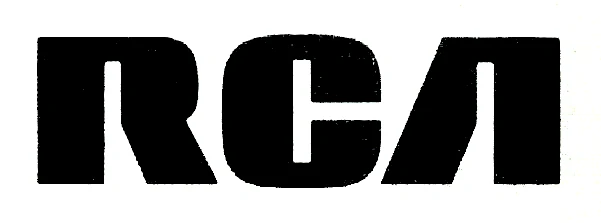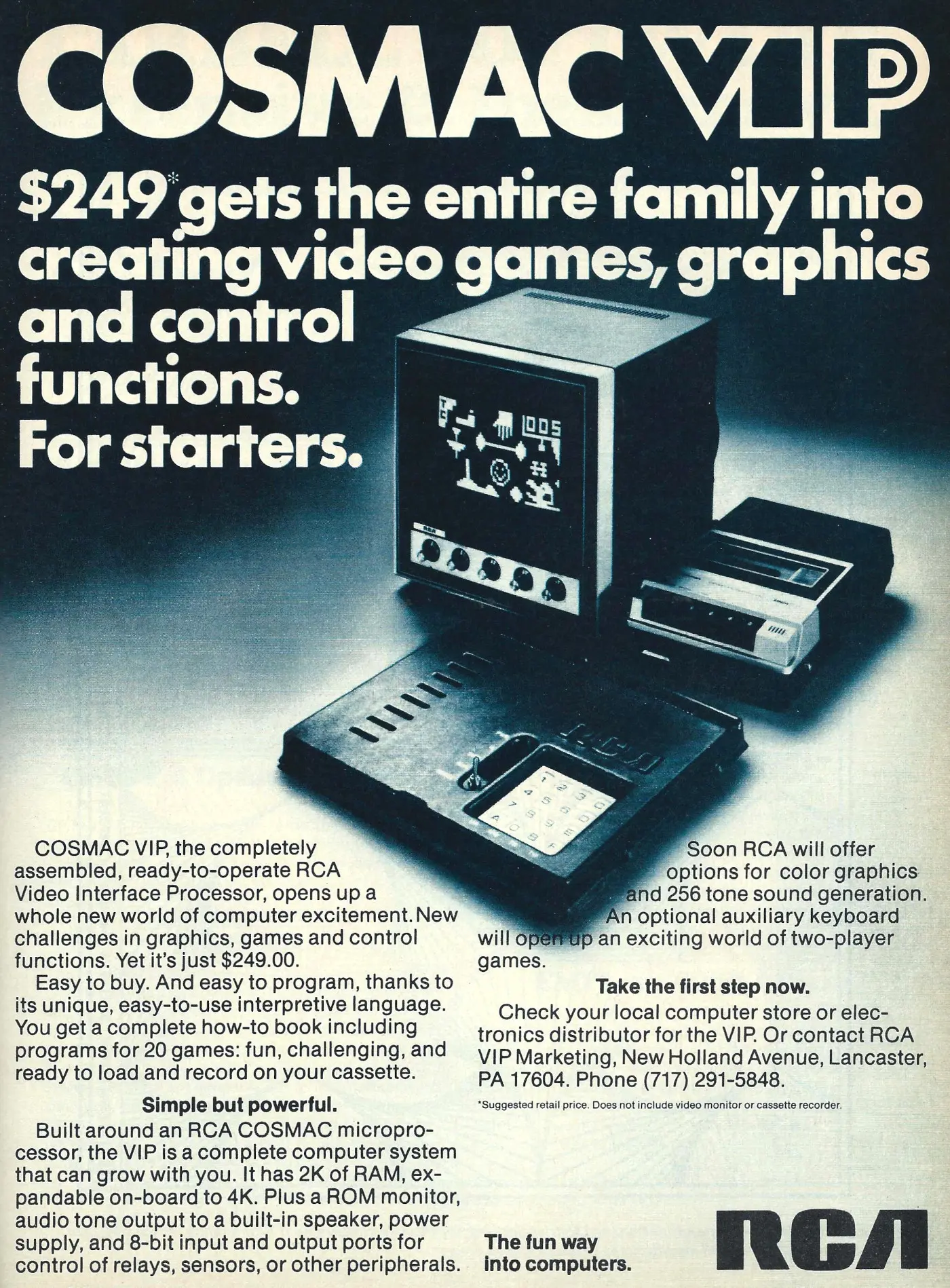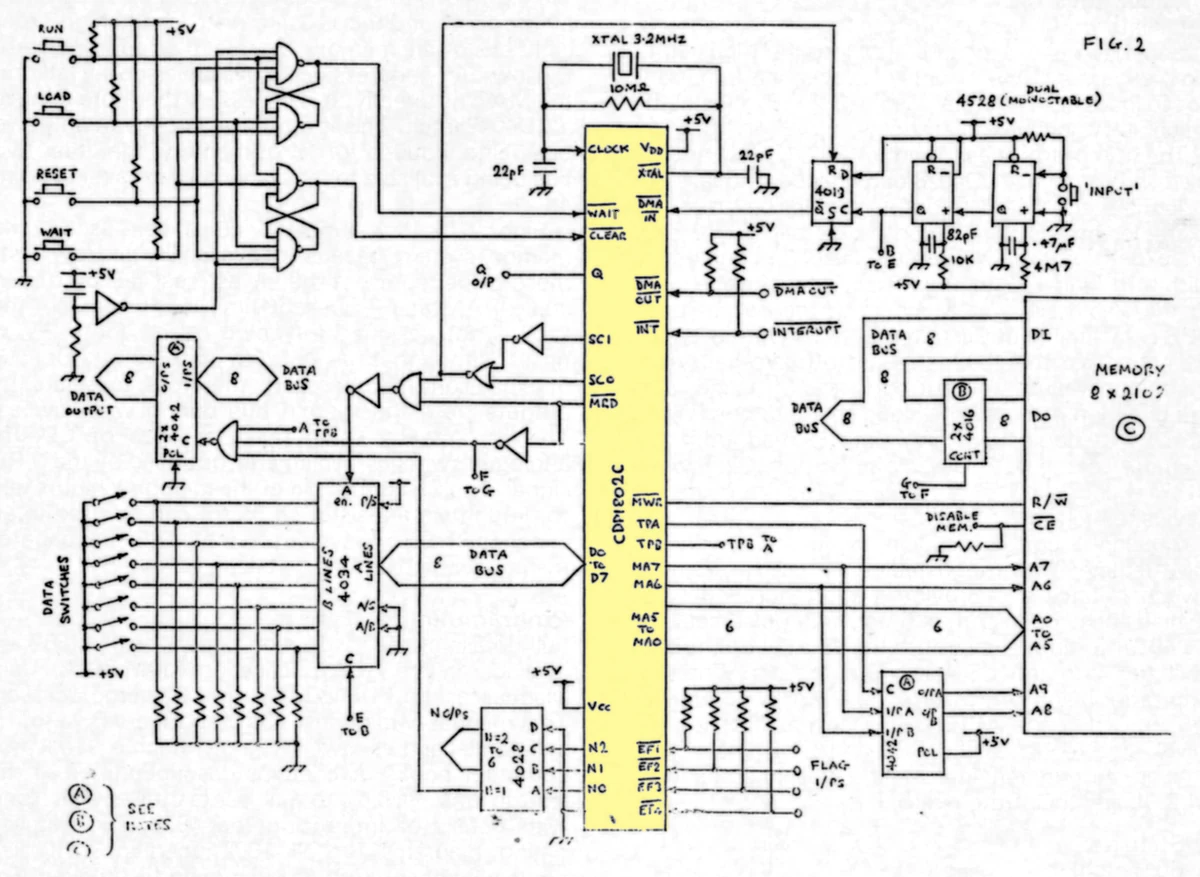
RCA Advert - September 1978
From Byte - The Small Systems Journal

COSMAC VIP: $249 gets the entire family into creating video games
RCA's COSMAC VIP was a small kit-built microcomputer, based around the COSMAC - COmplementary Symmetry Monolithic Array Computer - CPU and which was aimed at the video market created by games like Atari's Pong.
It's not, however, the market for ready-made and complete video games which could be plugged into a TV and played, rather it's aimed at video-game creators, which could, apparently, include the entire family.
And that's not really creating video games in the sense of building a world in Minecraft - it's creating them by entering machine code in hexadecimal, although the machine did also come with a cassette-tape interface and shipped with 20 pre-written games.
The chip itself - COSMAC - became known as the RCA CDP 1802. It was unusual in that there was a radiation-hardened version available, which meant it was actually used in space for NASA's Galileo missions[1].
The COSMAC was designed by Joseph Weisbecker, with the initial version built out of 100 individual TTL logic chips. It was probably the first chip explicitly designed for home-computer use.
It was developed further by RCA using CMOS technology, which used much less power than the more prevalent NMOS chip technology used in CPUs like Intel's 8080. This made it suitable for low-power applications, for example using batteries.
It was also unusual in that it could be "over-clocked" - in this case run at twice its normal speed - if it was run from a 12 volt, rather than the usual 5 volt, power supply[2].

The COSMAC/RCA 1802 was simple enough that it was easy to built an entire computer around it with very few additional components. This hand-drawn circuit diagram for such a home-brew system appeared in July 1978's Personal Computer World, where the COSMAC chip itself is highlighted in yellow.
Weisbecker's initial prototype system - called FRED - captured the attention of his daughter Joyce, who ended up writing games for it which were later burned into ROM and sold. This makes her the first known female videogame developer[3].
Had RCA done more with its chip, it could have been the company which created the home computer industry, years before Commodore and Sinclair. In an article in August 1974's "Computer", Weisbecker wrote of his FRED prototype that:
"A computer of this type could have major social value.… One can easily imagine the formation of a whole new group of computer hobbyists, complete with user groups and the publications for the exchange of programs and ideas. In short, the inexpensive home/school computer could open the door to an entirely new environment that stimulates experimentation, analysis, and creativity…. A system of this type would, for the first time, permit widespread access to computers"[4].
As of 2018, RCA's 1802 line of chips was still in use[5], whilst another of the company's lasting legacies is the more prosaic RCA connector, which is still used to connect hifi components, turntables and TV screens.
Date created: 29 January 2024
Last updated: 11 December 2024
Hint: use left and right cursor keys to navigate between adverts.
Sources
Text and otherwise-uncredited photos © nosher.net 2026. Dollar/GBP conversions, where used, assume $1.50 to £1. "Now" prices are calculated dynamically using average RPI per year.